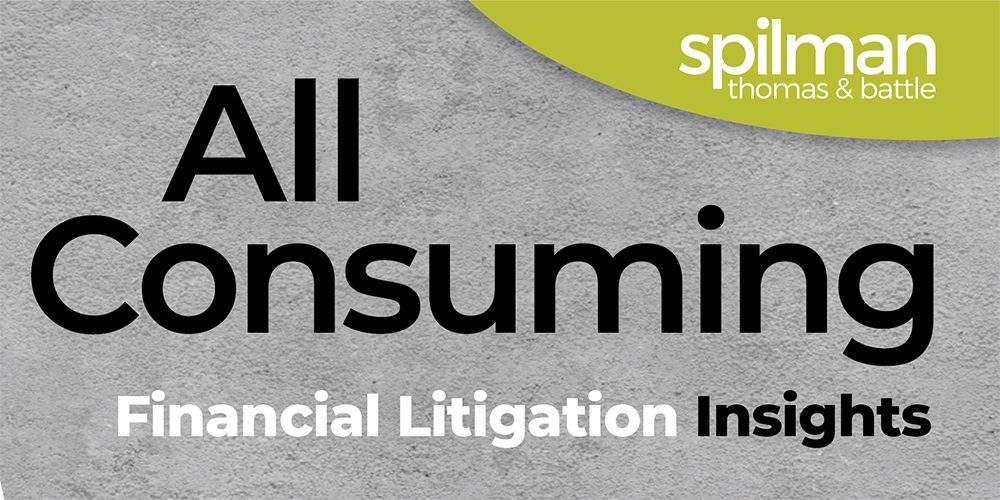Article
Resources
Article
Student Loans: Stressors and Pitfalls as Repayments Begin and CFPB Actions Against Alleged Fraudulent Conduct

On March 13, 2020, near the beginning of the pandemic in the U.S., the CARES Act included a pause for all federal student loans. Nearly 90 percent of student borrowers accepted “the option of pressing the pause button on their” student loans. Thus, the U.S. Department of Education ceased loan payments, applied a 0 percent interest rate, and stopped collection on defaulted loans (including garnishments). That pause has been extended repeatedly and borrowers for certain student loans have not been required to make payments for nearly two years. [1] Despite the pandemic pause, the CFPB has actively been engaged in investigation and enforcement activity relating to student loans.
Payments Resume
As the deadline for payments to resume nears, many experts are sounding the alarm that borrowers are unprepared to restart payments on their student loans. A recent survey of 23,000 borrowers found that 93 percent of borrowers are “not prepared to resume payments” on their student loans. [2] “Even before the pandemic, the country’s outstanding student loan debt balance exceeded $1.7 trillion and posed a larger burden to households than credit card or auto debt. Roughly a quarter of borrowers, or 10 million people, were estimated to be in delinquency or default.” [3] According to the president of the Student Debt Crisis Center, “The ongoing pandemic combined with unprecedented inflation are huge obstacles for borrowers who are, by and large, not ready to resume payments, struggling to afford basic needs, and confused about their options moving forward.” [2]
The Government Accountability Office report found that there is an increased risk of delinquency for up to half of federal student loan borrowers as repayment begins. [3] Especially due to outdated contact information, which will make communications about payments more difficult. [3]
The good news is that “the amount due will be largely the same, since interest on most federal student loans was suspended during the government’s payment pause.” [2] While that means borrowers are not facing increased student loan payments, borrowers are still facing rising inflation and an increased cost of living that occurred while payments were paused. [2]
For those who cannot afford to restart payments, exploring options, including income-driven repayment plans, forbearance, or deferment, may help to address the impending restart of payments.
Why this is important: First, given the potential for repayment problems, servicers should expect that a potentially large number of borrowers will be contacting servicers to discuss repayment terms, repayment programs, and other options. Servicers should review policies and procedures and begin preparing now for a potential deluge of borrowers seeking information and assistance. Second, borrowers should ensure contact information is current and, if hardship may occur due to the upcoming payment restart, should proactively be prepared to contact their servicers for assistance, options, and, potentially, more time.
CFPB Enforcement
While the pause in federal student loan payments has occurred, the CFPB has actively been engaged in enforcement activity relating to student loan debt.
Enacted in 2007, the Public Service Loan Forgiveness ("PSLF") program is a federal student loan forgiveness program for people devoted to careers in nonprofit and public organizations. The PSLF provides parameters for the cancellation of student loan debt if a borrower meets certain criteria relating to payments and years of service for a qualifying employer. [4] The loan program has proven to be complicated for borrowers to navigate, and several large student loan servicers have recently left the program. Given the historical complaints about the PSLF program and the numerous current proposals on changes to the federal student loan programs and payments, it is no surprise that the CFPB has increased scrutiny of servicers regarding the PSLF program. [4]
“Through its supervision of student loan servicers, the CFPB has found that servicers made deceptive statements to borrowers about their ability to become eligible for PSLF. When servicers fail to provide accurate and complete information, they mislead borrowers about their ability to benefit under PSLF, which can lead to tens of thousands of dollars in loan payments that should have been cancelled.” [4]
A new wavier program from the Department of Education is aimed at addressing these issues. The CFPB has issued clear guidance that servicers are expected to comply with federal consumer financial protection laws while administering the new waivers. “The CFPB plans to prioritize student loan servicing oversight work in deploying its enforcement and supervision resources in the coming year with a specific focus on monitoring engagement with borrowers about PSLF and the PSLF Waiver.” [4]
The CFPB is not just focusing on the servicing of student loans, however; it also has investigated student loan lending during the pandemic pause. In one case, the CFPB entered a consent order with a company that provided “income share agreements (ISAs) to finance postsecondary education.” [5] The companies used the ISA agreement in an attempt to circumvent disclosure requirements under Reg Z and TILA. [5] “The CFPB alleged that the financing companies misled students by characterizing its ISAs as neither ‘credit’ nor ‘private education loans,’” when, in fact, the ISAs were “credit” requiring certain federal disclosures. [5]
Why this is important: The CFPB has indicated clearly it will be focusing investigation and enforcement activity on student loans, and the servicing of student loans, for the foreseeable future. Servicers should routinely review announcements and bulletins from the CFPB on areas of focus, inquiry, or concern, then review policies and procedures to ensure compliance.
Quotations, statistics and survey results were published ina variety of articles. You can access them here.:
1. https://www.ed.gov/news/press-releases/biden-harris-administration-extends-student-loan-pause-through-may-1-2022
2. https://www.cnbc.com/2022/02/26/93percent-of-student-loan-borrowers-arent-prepared-to-restart-payments-survey-finds.html
3. https://www.cnbc.com/2022/02/25/half-of-student-loan-borrowers-at-increased-risk-of-delinquency-gao-finds-.html
4. https://www.consumerfinance.gov/about-us/newsroom/cfpb-steps-up-scrutiny-of-student-loan-servicers-who-deceive-borrowers-about-public-service-loan-forgiveness/
5. https://www.enforcementwatch.com/2021/09/07/cfpb-enters-into-consent-order-with-affiliated-education-financing-companies/

